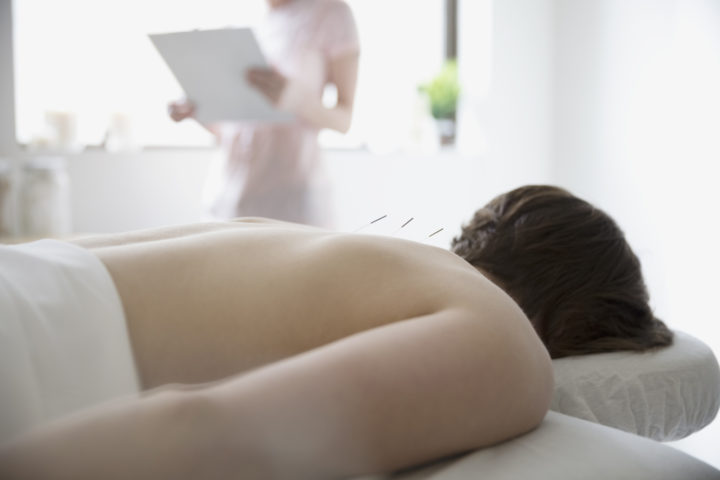According to the World Health Organization, Health is defined as a “complete state of physical, mental, and social well-being, not merely the absence of disease and infirmity.”
A direct connection between the mind and the body can alter your physical health and your mental health — unfortunately, I’ve found myself stuck in a labyrinth of cyclical disruptions plaguing my late twenties.
My mental and physical health have always been important to me. I exercise every day. My routine is rich with leafy greens and plenty of vitamins. I’ve always been a positive person, despite minor set backs and traumas which I have learned to cope with in my every day life. I consider myself to be well-rounded. People always said I have a “good head on my shoulders.”
Despite my efforts to maintain a healthy lifestyle, obstacles arose and for lack of a better term, shit happened. When my Pap results came back as abnormal I was rattled, but not terribly alarmed. I was aware of my HPV and I am also educated enough to understand that abnormal Paps are typically nothing too serious. What I didn’t except was to undergo a LEEP after my biopsy came with high grade stage 3 precancerous cells. While it isn’t cancer, or a death sentence, and it’s definitely preventable, I felt completely and utterly betrayed by my body.
I’m not a stranger to feeling rejected by my vagina, however. I write about it, talk about it, praise it, and hate it. It’s a complicated relationship. But my LEEP procedure catapulted me into an upheaval of emotions. Bed ridden with complications, abnormal bleeding, an infection, and the inability to have sex weighed down on my mental stability. Since my past traumas are locked inside of my reproductive system, it almost feels natural for me to become immensely, overwhelmingly, depressed. I immediately unraveled.
A LEEP is a treatment that prevents cervical cancer after abnormal cells have been found on the cervix. The Loop Electrosurgical Excision Procedure uses a small electrical wire loop to remove abnormal cells. Typically, a LEEP is done after a colposcopy, or a biopsy.
The procedure is simple. You lie in stirrups on an exam table as a doctor applies numbing cream to your cervix. Then, the doctor will use a small tool to remove abnormal cells. The cells are taken to the lab to be tested for cervical cancer. During my procedure, I was still recovering from bleeding induced by my colposcopy. The ten minute LEEP procedure was easy enough, but the emotional distress persisted. A complication with a LEEP means there could be an inability to carry a baby in the future, as the cervix is cut into it and prevents the cervix from holding in a baby. Somehow, for someone who wasn’t necessarily counting on having children, this devastated me. On top of feeling as if my health was in deep jeopardy, recovering physically, and feeling out of control of my sexual health, my future of a family was possibly be altered. Overall, it was an avalanche of information that inundated my thoughts.
Studies show that depression is reduced when someone incorporates regular exercise into their routine and is as effective as an antidepressant. After my LEEP, I was required to rest for approximately a week. However, my complications with an infection and constant bleeding prevented me from participating in any of my every day activities—aka dancing, yoga, running, and swimming. I immediately became restless, agitated, lost, and hopeless. Exercise is at the core of my mood and positive outlook. Reckless behavior, manic episodes, and hours lying in bed encapsulated my life. My woe-is-me persona was wearing thin, and I couldn’t, and still can’t, shake out of the rut.
As a writer, I take my experiences, my upsets, and my average thoughts and dwell on them. I began to think about aftercare for medical procedures, whether small or large, and why facilities don’t cater to patients who may be mentally unstable after a sudden bodily change. As minor as mine may seem, I have been subjected to an imbalance. My normal routine has shifted. My body feels violated, unsafe, and sick.
After my procedure, I never had a doctor check in on my mental stability or my emotional needs. While I understand an OBGYN’s practice is to look at my physical health, I was waiting for a simple, “How are you doing?” or “Everything okay?”. Instead, I was met with a quick de-gloving and abrupt slam of a door as my doctor and nurse briskly said, “Rest, take it easy and have a nice day, Ms. Lane.” Emptiness seems like an obvious place holder when your body is fighting you and your health practitioners seemingly abandon you and all discourse.
The culture surrounding women’s sexual health, and the silence that looms over it, is truly shocking. My symptoms of depression and anxiety are not unique. Women do suffer emotionally from procedures that affect their cervix and reproductive systems. However, our medical infrastructure lacks the competence to acknowledge these side-affects or possible outcomes. The neurological effects go unspoken.
With one in five adults having a mental illness, health care providers should include a support system for emotional needs. Moreover, these illnesses are cyclical. Depression is linked to 50 percent of an increased risk of death from cancer, therefore perpetuating the one thing I am attempting to avoid. By being depressed over my body’s illness, I am causing more harm to myself than any good. But as we all know know, it isn’t something we can simply disquiet with a brush of a hand.
My most important resource has been my support. Reaching out to friends, staying busy, and maintaining a healthy sleep schedule have greatly improved my mental and emotional state. While I am in no way back to my normal self—with thoughts of my next Pap looming over my mind—I am confident it will improve my physical health and impact my mental health.
Evidence that the mind and body do correlate and influence each other is abundant. Laura Carstensen, a professor of psychology at Stanford University says to US News, while negative thoughts may not “cause a disease, they appear to accelerate its progression.” She goes on to explain that, “the brain translates that fear of rejection and isolation into physical stress, which can weaken the immune system.”
After my LEEP, I came down with the flu, twice. My immune system and my brain were battling my lack of positivity. While not every LEEP, or colposcopy, will lead to months of negativity and hopelessness, it did trigger these emotions for myself. This isn’t to say we will all experience an onslaught of sickness and emotional labor. However, it is interesting to think about how minor procedures, or more serious surgeries, can deeply affect and root themselves into our mind-to-body connection.
There isn’t much information about a LEEP’s psychological and emotional impact. But this isn’t surprising, is it? However, the internet is rich with women and their personal accounts reaching out for advice, support, and a network.
Here is some advice for healing emotionally from a LEEP, according to women online, and my personal experiences:
- Massages—body treatments, for pain, soreness, and fatigue
- Nourishing your body through yoga
- Reproductive acupuncture
- Meditating, breathing, and resting
- Implementing vitamins and more water
What extracts me from the bed in the morning are articles like this. I spend my days writing about women’s health and have recently been on a kick of speaking out about HPV—and the emotional seriousness of it. Last night I crawled under my sheets at 9pm after being unable to finish this particular piece. Writing about my emotional upsets was highlighting their reality in my world.
I woke up this morning, began making my morning coffee, and wrote these concluding lines. While my condition isn’t at its worse—it’s far from that—it still lingers in the back of my mind. However, what else can I do but take that anxiety, that self-pitying sadness, and turn it into written pieces that speak for individuals who yearn for an understanding as much as I do. My network is your network.
Always remember additional help is available:
The National Suicide Prevention Lifeline is a 24-hour, toll-free suicide prevention service available to anyone in suicidal crisis. If you need help, please dial 1-800-273-TALK (8255).




comments